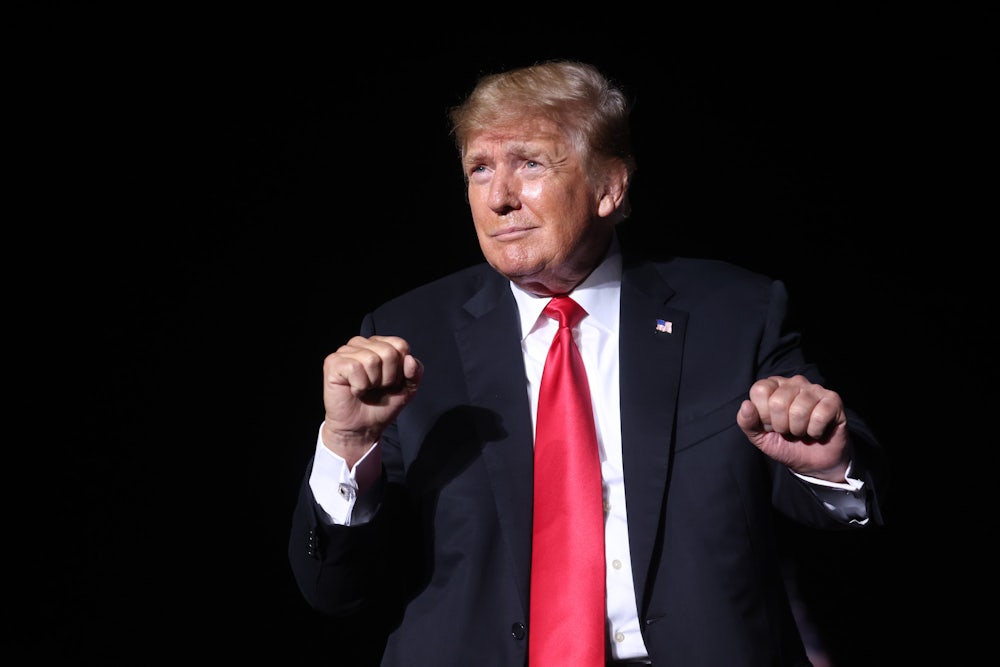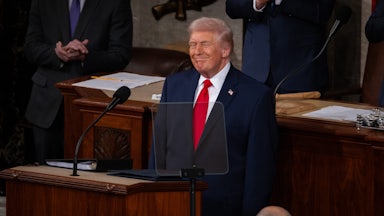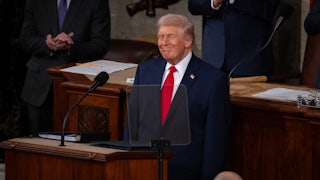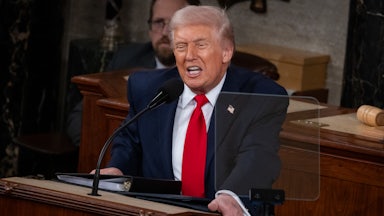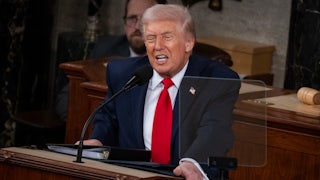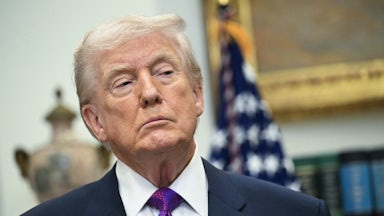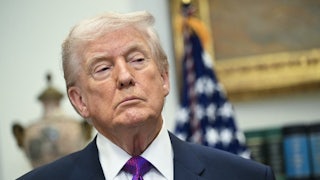Shortly after Texas’s Republican primary polls closed last Tuesday, Donald Trump declared victory—for himself. “All 33 Trump-Endorsed candidates won last night in Texas, or are substantially leading,” he said in a statement on Wednesday. “Big night! How will the Fake News make it look bad?”
Trump was, true to form, overstating his success—most of the candidates he had endorsed were running unopposed. But he was repeating a familiar boast. Throughout his presidency, he touted himself as the endorser-in-chief, a figure with a Midas touch when it came to candidates. “88 and 2 (really 1) in ENDORSEMENTS this election cycle, and @FoxNews was critical. Has anyone ever done so well? I doubt it!” he tweeted in the summer of 2020. There was a familiar narcissism in Trump’s endorsement talk. Success in politics is often difficult to compute, and Trump was a persistent failure in one key metric: His approval rating was often in record-low territory. That many Republicans sought his endorsement, along with his ability to deliver, demonstrated that he was still a winner, even if the majority of the country didn’t think so.
Trump’s boasts played another critical role, however. Throughout his tenure at the top of Republican politics, he was constantly fending off critics and challenges from fellow Republicans. And while most of these were tepid trifles, it hardly mattered. Obsessed with the Republicans who he believed had a hand in undermining his presidency, Trump also used his endorsements as a way of cultivating and maintaining loyalty within the party and of signaling which insufficiently pliant Republicans should be replaced.
But while Trump’s capacity for braggadocio remains bottomless, there are signs that his kingmaking skills are slipping—and that, perhaps, his hold on the Republican Party isn’t as firm as it once was.
Yes, Trump may have gone undefeated in Texas, but only on a technicality: George P. Bush has forced Trump’s guy, Attorney General Ken Paxton, into a runoff in what is arguably the state’s most important race. In North Carolina, his hand-picked candidate for the state’s Senate nomination, Representative Ted Budd, is currently “struggling to gain traction, raising concerns among his powerful backers,” per Politico.
In Georgia, his preferred candidate, David Perdue, is struggling mightily to overtake Brian Kemp in the state’s gubernatorial race. This is the race that Trump takes especially personally—he has long been angry about Kemp’s failure to step in and hand the state’s electoral votes over to him in 2020. In Alabama and Alaska, meanwhile, his hand-picked candidates are struggling financially against incumbents.
Pennsylvania, meanwhile, has been nothing short of a disaster for Trump. His original candidate for the Republican Senate primary, Sean Parnell, suspended his campaign in November amid domestic violence allegations. Trump stuck with him for weeks after the scandal surfaced, even pledging to host a fundraiser for Parnell at Mar-a-Lago that only was called off after Parnell dropped out of the race. But Parnell’s fortunes never recovered; Trump was reportedly furious after he backed out of the race. Trump has not yet picked a new candidate, which is currently a toss-up between teevee snake-oil salesman Dr. Oz and former hedge fund CEO David McCormick.
In Missouri, he is in similar straits, as he weighs whether to endorse Eric Greitens, the former governor who resigned amid multiple scandals, including one involving revenge porn. (Greitens is perhaps the one candidate in America to whom Parnell compares favorably. Should Trump back him, he will truly be going where angels fear to tread.)
Part of the problem is that Trump is, in many cases, directly challenging incumbents who he believes have crossed him. As Politico observed last year, this can create resentment within the party, as Trump has focused on divisive, costly primary races at the expense of more certain successes in the midterm elections. “To some Republicans,” Politico reported, “Trump’s efforts to take down GOP incumbents in federal and state races are at odds with the party’s interests in a midterm election where Republicans are within striking distance of recapturing control of Congress. While the party is focused on the November 2022 general election, Trump’s gaze is fixed on the primary election season that begins next spring.”
The fact that Trump no longer has a Twitter account and thus has to constantly intervene in these contests to demonstrate his relevance is another factor. He has, in recent days, struggled to receive any attention at all—an unhinged three-page single-spaced letter to NBC’s Lester Holt barely registered in the media. He retains a profound hold on a sizable portion of the electorate, but as the primaries near, he has nothing close to the megaphone he had before the January 6 riot at the Capitol.
Make no mistake: It’s still Trump’s party. Should he win the nomination in two years, he will use his perch to bend the GOP to his will at every opportunity. But his early mixed endorsement record shows that his efforts to remake it entirely in his image are faltering. The Republican Party may still be rotten to its core, but it doesn’t belong entirely to Donald Trump.
